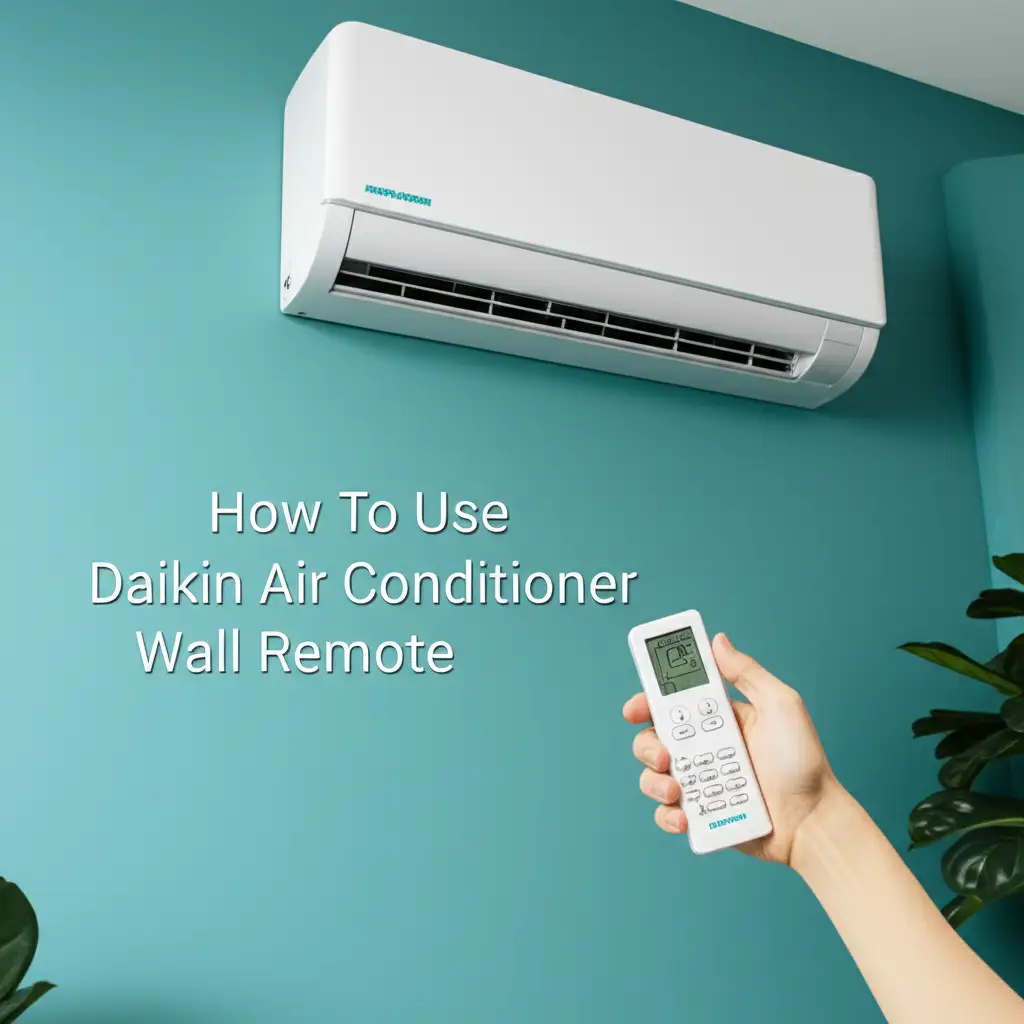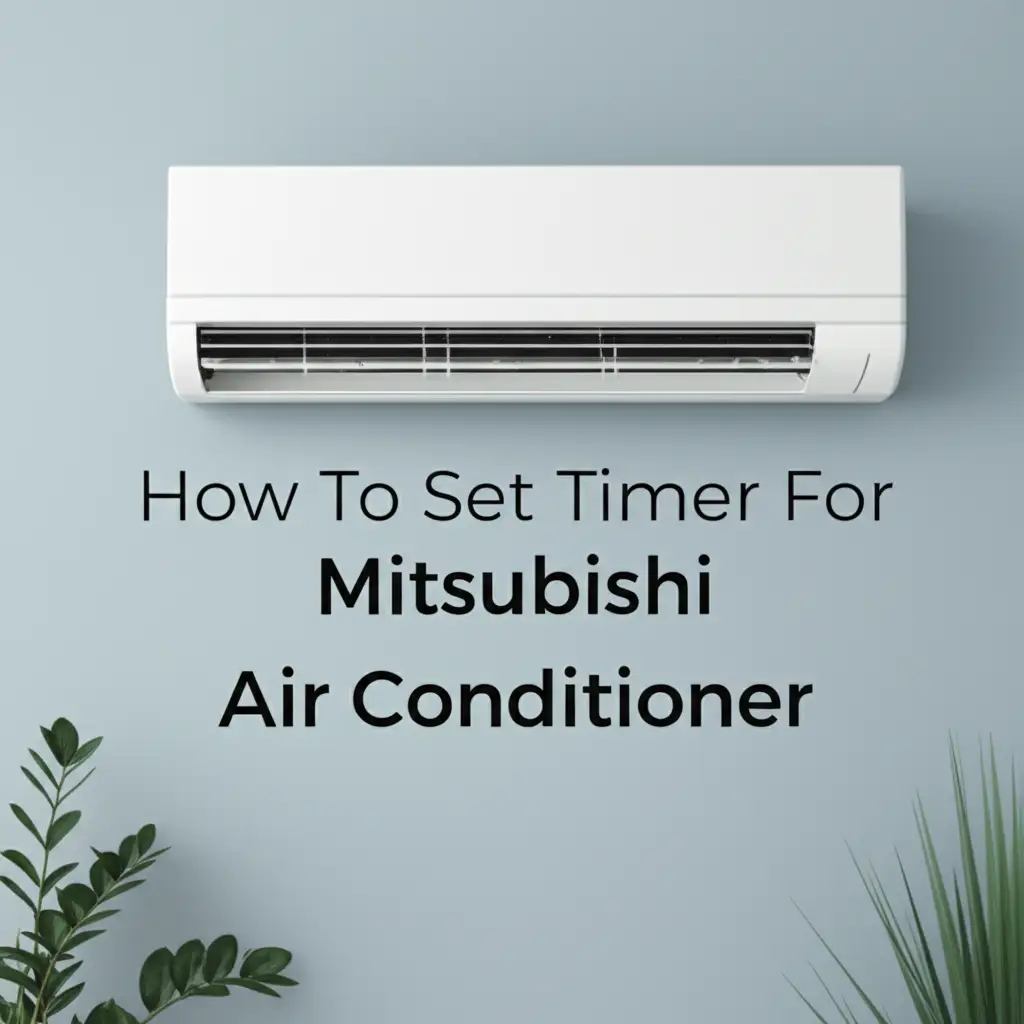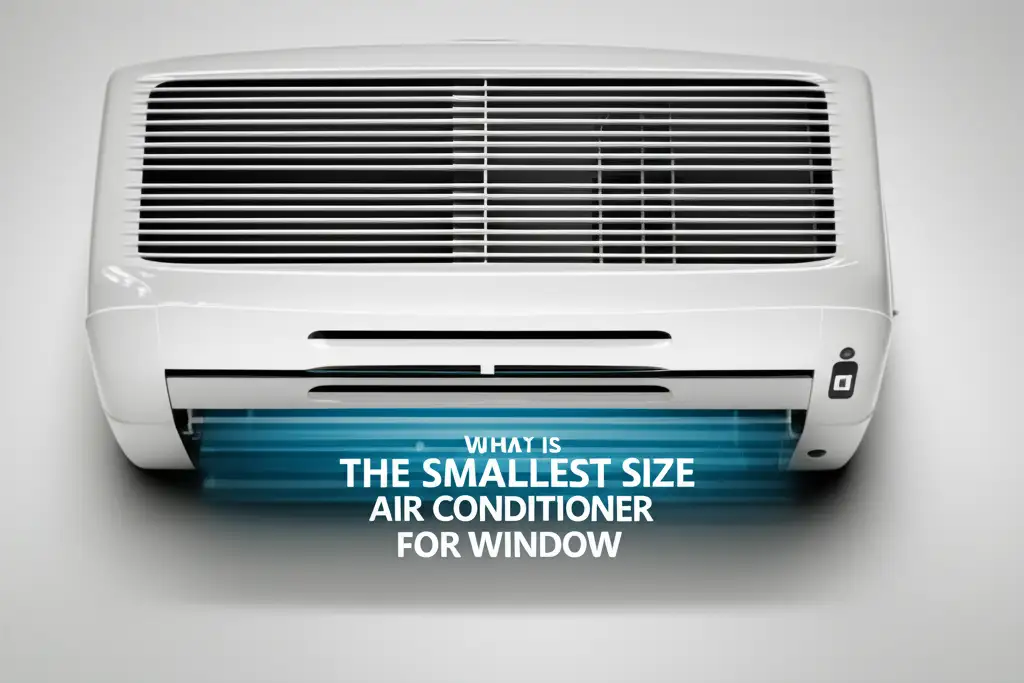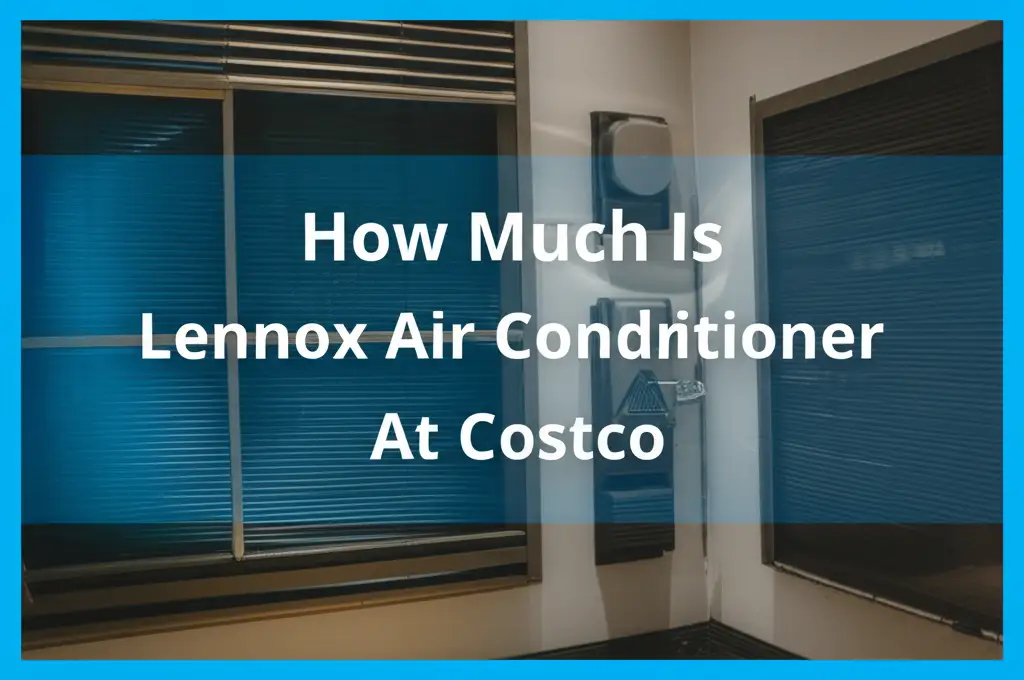· Katria Melrose · Air Conditioners · 18 min read
How Much Is Inverter Air Conditioner In Nigeria

Understanding Inverter AC Prices in Nigeria
Nigeria’s heat can be intense. Finding a reliable and efficient way to stay cool at home is important. Many people consider air conditioners. You might wonder, “How much is inverter air conditioner in Nigeria?” This question comes up often. Inverter ACs offer great benefits, especially when it comes to saving energy.
This article will help you understand the cost of inverter air conditioners in Nigeria. We will look at factors that affect prices. We will also explore popular brands and their price ranges. You will learn about long-term savings these units provide. My goal is to give you clear information. This helps you make an informed decision about your cooling needs.
Takeaway
- Inverter AC prices in Nigeria range from N250,000 to N1,000,000+ depending on brand, capacity, and features.
- Key factors influencing cost include BTU rating, smart features, and brand reputation.
- Inverter ACs offer significant energy savings over standard models, lowering electricity bills.
- Popular brands like LG, Samsung, Midea, Gree, and Haier offer various inverter AC options.
- Consider long-term running costs and energy efficiency when budgeting for an inverter AC.
In Nigeria, an inverter air conditioner typically costs between N250,000 and N1,000,000 or more. This price range depends on factors like the unit’s cooling capacity (measured in BTUs or Horsepower), the brand, additional smart features, and the vendor. Investing in an inverter AC offers long-term energy savings despite a higher initial price.
What is an Inverter AC and Why It Matters in Nigeria?
An inverter air conditioner is a type of AC unit. It uses a variable-speed compressor. This technology differs from traditional ACs. Standard ACs turn their compressors on and off completely. An inverter AC adjusts the compressor speed. It matches the cooling demand of the room. This means it runs continuously but at different power levels.
This technology has many benefits. One main benefit is energy efficiency. The compressor does not constantly stop and start. This uses less electricity. Inverter ACs also provide more consistent cooling. They maintain a steady room temperature. This leads to greater comfort. They also operate more quietly. This makes your home peaceful.
For Nigeria, these benefits are very important. Electricity supply can be inconsistent. Power costs are often high. An energy-efficient AC helps reduce your monthly bills. A consistent power draw also makes inverter ACs more compatible with alternative power sources like generators or solar systems. They put less strain on these systems. My experience has shown that these units offer a more stable power draw. This makes them ideal for homes relying on generator power. Inverter technology helps you save money on electricity over time. It also gives you better cooling. You can learn more about how this technology saves power by checking out How does an inverter air conditioner save energy?.
Key Factors Influencing Inverter AC Prices in Nigeria
The price of an inverter air conditioner in Nigeria is not fixed. Several factors determine how much you pay. Understanding these factors helps you budget properly. It also ensures you get the right unit for your needs. I have seen many people confused by price differences. Knowing these points will make your choice clearer.
Brand Influence on Inverter AC Costs
The brand of the air conditioner plays a big role in its price. Established international brands usually cost more. These brands include LG, Samsung, Daikin, and Panasonic. They are known for quality and durability. They often include advanced features. Local brands or newer market entrants might offer lower prices. They may still provide good performance. Some popular and reliable brands in Nigeria are Midea, Gree, and Haier. Each brand has its own pricing strategy. They target different customer segments. My experience tells me that premium brands often justify their price with better after-sales support.
Capacity and Cooling Power
Air conditioners are rated by their cooling capacity. This is measured in BTUs (British Thermal Units) or Horsepower (HP). A higher BTU or HP rating means more cooling power. It also means a higher price. For example, a 1.0 HP inverter AC will be cheaper than a 2.0 HP unit. Room size determines the required capacity. A small room might need 1.0 HP. A large living room or office could require 2.5 HP or 3.0 HP. Choosing the right size saves energy and ensures effective cooling. An undersized AC will work harder and use more power. An oversized one will cycle too often. This wastes energy and money.
Features and Technology
Modern inverter ACs come with many features. These features add to the unit’s cost. Smart features are common. They allow you to control the AC with your smartphone. Wi-Fi connectivity is part of this. Self-cleaning functions help maintain the unit. Advanced air filtration systems improve air quality. Sleep modes and eco-modes optimize energy use. Units with higher energy efficiency ratings (like higher SEER or EER) may cost more upfront. However, they save more on electricity bills in the long run. Some units have dual inverter technology. This offers even better efficiency and faster cooling. These advanced features generally increase the initial purchase price.
Installation Costs
The purchase price of an inverter AC often does not include installation. Installation costs vary widely in Nigeria. They depend on the complexity of the installation. Factors include piping length, wall drilling, and bracket requirements. The technician’s experience and location also affect the cost. Always get a clear quote for installation before buying. Some vendors offer installation packages. This can sometimes save you money. Ensure the installer is qualified. Proper installation is vital for the AC’s efficiency and lifespan.
Price Range of Popular Inverter AC Brands in Nigeria
When buying an inverter AC in Nigeria, you will find a wide range of prices. These prices depend heavily on the brand and the unit’s capacity. It is good to have an idea of what to expect. This helps you plan your budget. I have observed prices in various Nigerian cities. My findings show consistency across major retailers.
LG Inverter Air Conditioners
LG is a very popular brand in Nigeria. They are known for their Dual Inverter technology. This technology offers faster cooling and significant energy savings. LG inverter ACs are usually in the mid to high price range.
- LG 1.0 HP Dual Inverter AC: N250,000 - N400,000
- LG 1.5 HP Dual Inverter AC: N350,000 - N550,000
- LG 2.0 HP Dual Inverter AC: N500,000 - N750,000
- LG 2.5 HP Dual Inverter AC: N700,000 - N950,000
- LG 3.0 HP Dual Inverter AC: N850,000 - N1,200,000+
These prices can vary based on the specific model and features. You can get a better idea of general LG AC costs by reading How much is LG air conditioner in Nigeria. LG models often come with features like active energy control and low noise operation.
Samsung Inverter Air Conditioners
Samsung is another strong contender in the Nigerian market. Their Digital Inverter technology is well-regarded. Samsung ACs often boast stylish designs and smart features. Their prices are competitive with LG.
- Samsung 1.0 HP Digital Inverter AC: N240,000 - N380,000
- Samsung 1.5 HP Digital Inverter AC: N330,000 - N520,000
- Samsung 2.0 HP Digital Inverter AC: N480,000 - N720,000
- Samsung 2.5 HP Digital Inverter AC: N680,000 - N920,000
- Samsung 3.0 HP Digital Inverter AC: N800,000 - N1,150,000+
Samsung units frequently include features like Triple Protector Plus and good sleep mode. For more specific Samsung prices, you might want to check How much is Samsung air conditioner in Nigeria.
Midea Inverter Air Conditioners
Midea is a global leader in home appliances. They offer a good balance of features and affordability. Their inverter ACs are known for reliable performance. Midea often provides more budget-friendly inverter options.
- Midea 1.0 HP Inverter AC: N200,000 - N320,000
- Midea 1.5 HP Inverter AC: N280,000 - N450,000
- Midea 2.0 HP Inverter AC: N400,000 - N600,000
- Midea 2.5 HP Inverter AC: N550,000 - N750,000
Midea models often feature super-fast cooling and smart diagnostics. They are a good choice if you are looking for value.
Gree Inverter Air Conditioners
Gree is another popular brand. They are known for their robust and durable air conditioners. Gree inverter ACs are a common sight in Nigerian homes and offices. They provide good cooling capacity.
- Gree 1.0 HP Inverter AC: N210,000 - N340,000
- Gree 1.5 HP Inverter AC: N290,000 - N470,000
- Gree 2.0 HP Inverter AC: N420,000 - N620,000
- Gree 2.5 HP Inverter AC: N580,000 - N780,000
Gree models often include I-Feel function and cold plasma generator. These features enhance comfort and air quality.
Haier Thermocool Inverter Air Conditioners
Haier Thermocool is a trusted brand in Nigeria. They offer various home appliances. Their inverter ACs are designed for local conditions. They often have features that handle power fluctuations well.
- Haier Thermocool 1.0 HP Inverter AC: N220,000 - N350,000
- Haier Thermocool 1.5 HP Inverter AC: N300,000 - N480,000
- Haier Thermocool 2.0 HP Inverter AC: N450,000 - N650,000
- Haier Thermocool 2.5 HP Inverter AC: N600,000 - N800,000
Haier Thermocool units often focus on durability and stable performance. They are a reliable option for many homes.
Most of these inverter ACs are split units. If you are curious about the general cost of split ACs, you can find more details in How much is split air conditioner in Nigeria. The price ranges mentioned are estimates. Actual prices can vary based on seller, promotions, and current market conditions. It is always wise to compare prices from several vendors.
Where to Buy Inverter Air Conditioners in Nigeria
Finding a reliable place to buy your inverter AC is as important as choosing the right model. Nigeria offers several channels for purchasing these appliances. Each channel has its own advantages. I always recommend checking multiple sources. This ensures you get the best deal and authentic products.
Major Electronics Retail Stores
Large electronics stores are a primary source for inverter ACs. Shops like Fouani, SLOT, Park ‘n’ Shop, and Electromart carry a wide range of brands. These stores often have showrooms where you can see the units. You can also speak with sales staff. They can provide advice. Buying from these stores often gives you peace of mind. You get an official warranty. They also have good after-sales service. This is important if you face any issues. These stores typically have fixed prices, but they might offer seasonal discounts.
Online Marketplaces
E-commerce platforms have become very popular in Nigeria. Jumia and Konga are the biggest players. They offer a vast selection of inverter ACs from various brands. You can compare prices easily. User reviews can provide valuable insights. Online shopping offers convenience. You can order from home. Delivery services bring the product to your doorstep. However, you need to be careful. Always verify the seller’s reputation. Ensure they offer an official warranty. Look out for fraudulent sellers. Some online deals might seem too good to be true. They often are.
Authorized Brand Dealers and Showrooms
Many major AC brands have authorized dealers or dedicated showrooms. LG, Samsung, Gree, and Midea often have their own outlets. Buying directly from an authorized dealer is a great option. It guarantees product authenticity. You get the full manufacturer’s warranty. The staff are usually well-trained. They can offer expert advice. They might also provide special services. These include installation support. Prices might be less flexible here. However, the assurance of quality and support is high. I prefer buying from authorized dealers for expensive appliances. This avoids issues later.
Local Appliance Vendors
You will find many local appliance shops in markets. These shops also sell inverter ACs. Prices here might be negotiable. This can sometimes lead to a better deal. However, exercise caution. Ensure the products are new and genuine. Check for proper packaging and serial numbers. Always ask for a warranty card. Some smaller vendors might sell parallel imports. These may not have a valid local warranty. Always verify the product’s authenticity before making a purchase. It is wise to cross-check prices with larger stores or online platforms.
When buying, always ask about the warranty period. Understand the terms and conditions. Confirm if installation is included or costs extra. Inquire about after-sales service and spare parts availability. This prepares you for any future needs.
Beyond the Purchase Price: Running Costs and Long-Term Savings
When you consider how much is inverter air conditioner in Nigeria, the initial price is just one part. The true cost includes how much it costs to run. Inverter ACs are known for their energy efficiency. This translates into significant savings on your electricity bills over time. This long-term saving is a key reason to choose an inverter model.
Energy Consumption Comparison
Traditional non-inverter ACs operate at a fixed speed. When the room reaches the set temperature, they turn off. When the temperature rises, they turn back on at full power. This on-off cycle consumes a lot of electricity. Each start-up draws a high surge of power. Inverter ACs, however, adjust their compressor speed. They run continuously but at lower power levels once the desired temperature is reached. This avoids the constant start-up power surges. It results in much lower electricity consumption. I have personally seen how much this difference impacts monthly bills.
For example, a 1.5 HP non-inverter AC might consume around 1.5 units of electricity per hour. An equivalent 1.5 HP inverter AC might consume 0.8 to 1.2 units per hour. Over many hours of operation, this difference adds up. You can find more specific details on power usage by checking How much electricity does an inverter air conditioner use. This efficiency is especially vital in Nigeria. Electricity tariffs can be high. Power supply can also be inconsistent.
Electricity Bill Savings
The core benefit of an inverter AC is lower electricity bills. While the initial purchase price is higher, the savings on running costs offset this over time. Consider an AC running for 8 hours a day. Over a year, the energy savings from an inverter model can be substantial. In a few years, the savings can cover the extra cost of the inverter unit. This makes the inverter AC a smart investment for the long term. This is why many people, including myself, advocate for inverter technology. It truly pays for itself.
To calculate your potential savings, estimate how many hours you use your AC daily. Then, compare the average power consumption of inverter versus non-inverter models. Multiply by the local electricity tariff. This gives you a clear picture of savings. Understanding How many hours does inverter air conditioner use can help you estimate your long-term costs accurately.
Maintenance Costs
Maintenance also contributes to the long-term cost. Inverter ACs are generally durable. They require routine cleaning and servicing. Cleaning filters regularly is important. This ensures optimal performance. It also maintains air quality. Professional servicing once a year can prolong the unit’s lifespan. These costs are similar for both inverter and non-inverter ACs. However, because inverter ACs experience less wear and tear on their components due to variable speed operation, they might potentially have fewer breakdowns. This can reduce repair costs over their lifespan. You can get a good idea of overall running costs by checking out How much does an inverter air conditioner cost to run. Regular maintenance is key to keeping your inverter AC running efficiently and saving you money.
Making the Right Choice: Tips for Nigerian Buyers
Choosing the right inverter air conditioner in Nigeria needs careful thought. It is not just about the price tag. You need to consider your specific needs. You also need to think about long-term value. I always advise people to look beyond the initial purchase.
Calculating Your Cooling Needs
The first step is to determine the right capacity for your room. An AC that is too small will struggle. It will not cool effectively. An AC that is too large will cycle on and off too often. This wastes energy. It also creates uneven cooling. Measure your room’s dimensions (length x width). Consider factors like ceiling height, number of windows, and sun exposure. A general rule of thumb is 600 BTUs per square meter for a standard room. For a 12-15 square meter room, 1.0 HP (9,000-12,000 BTU) is usually sufficient. For a 18-24 square meter room, 1.5 HP (12,000-18,000 BTU) is ideal. Larger rooms like living areas might need 2.0 HP or more. Always consult with the vendor or an HVAC professional. They can recommend the perfect size.
Checking Energy Ratings
Always look for the energy efficiency rating. Inverter ACs are inherently more efficient. However, there are variations among models. Look for the EER (Energy Efficiency Ratio) or SEER (Seasonal Energy Efficiency Ratio) ratings. A higher EER/SEER means greater energy savings. While these ratings are more common in international markets, reputable brands in Nigeria will often provide this information. Units with higher ratings might have a higher upfront cost. But they will save you more on electricity bills in the long run. Prioritize efficiency. It makes a big difference in operational costs.
Considering Brand Reputation and Local Support
Choose a brand with a good reputation in Nigeria. Brands like LG, Samsung, Midea, Gree, and Haier are well-established. They have a history of providing reliable products. More importantly, check for local service centers and spare parts availability. If your AC needs repair, you want easy access to technicians and parts. A brand with strong local support ensures that you can get your unit fixed quickly. This minimizes downtime. It also protects your investment. Some brands offer extended warranties. This gives you extra peace of mind.
Factoring in Installation and Warranty
Always clarify installation costs. Some retailers include it. Others charge separately. Improper installation can lead to poor performance and higher energy use. It can also void your warranty. Ensure a qualified technician installs your unit. Insist on getting a warranty card. Understand what the warranty covers. Know its duration. A typical warranty for compressors is often 5-10 years. Other parts might have a 1-2 year warranty. A good warranty protects you from manufacturing defects. It also protects you from early component failures.
Reading Reviews and Seeking Recommendations
Before buying, read reviews from other Nigerian users. Online marketplaces like Jumia often have customer feedback. Ask friends, family, or colleagues for recommendations. Real-world experiences can provide valuable insights. They might highlight common issues or unexpected benefits. This helps you choose a model that performs well in local conditions. I often find user reviews to be very helpful in making final decisions.
Budgeting for Total Cost of Ownership
Remember that the purchase price is only part of the total cost. Factor in installation, potential stabilizer costs (if your power supply is unstable), and ongoing electricity bills. The long-term savings from an inverter AC often outweigh its higher initial price. Look at the total cost of ownership over 3-5 years. This gives you a more accurate picture. An inverter AC might cost more today, but it saves you much more tomorrow.
Inverter AC vs. Standard AC: A Cost-Benefit Analysis
Deciding between an inverter AC and a standard (non-inverter) AC is a common dilemma. Both cool your space. However, their methods and long-term costs differ significantly. This analysis will help you understand the true value. I want to highlight why the investment in an inverter AC often makes more sense in Nigeria.
Initial Cost Comparison
Standard ACs generally have a lower initial purchase price. You might find a 1.5 HP standard AC for N180,000 - N250,000. An equivalent 1.5 HP inverter AC would cost N300,000 - N500,000 or more. This upfront difference can be a barrier for some buyers. For those on a tight budget, the lower initial cost of a standard AC might seem attractive. However, this is only part of the financial picture. Many people overlook the hidden costs of standard ACs.
Installation costs are similar for both types. Therefore, the primary difference in initial outlay is the unit’s price itself. It is important to remember that this higher initial cost for an inverter AC is an investment. It is not just an expense.
Operational Cost Comparison
This is where inverter ACs truly shine. Standard ACs consume more electricity because their compressors constantly cycle on and off at full power. Each time they restart, they draw a significant power surge. This leads to higher electricity bills. Inverter ACs, with their variable-speed compressors, adjust their power output. They maintain a consistent temperature without frequent stops and starts. This leads to substantial energy savings.
In Nigeria, where electricity costs are a concern, these savings are very significant. Over a year of regular use, an inverter AC can cut your electricity consumption for cooling by 30-50% compared to a non-inverter model. This translates directly into lower monthly bills. The difference in operational cost quickly offsets the higher initial purchase price. My personal experience confirms these substantial savings.
Long-Term Value Proposition
Beyond electricity savings, inverter ACs offer other long-term benefits.
- Extended Lifespan: The variable operation of an inverter compressor reduces wear and tear on its components. This can lead to a longer operational lifespan for the unit. Standard ACs, with their frequent on-off cycles, put more stress on the compressor.
- Consistent Cooling and Comfort: Inverter ACs maintain a more stable room temperature. There are no noticeable temperature swings. This provides greater comfort. Standard ACs often lead to rooms being too cold or too warm as they cycle.
- Quieter Operation: Inverter units operate more quietly. The compressor rarely runs at full blast once the set temperature is reached. This creates a more peaceful indoor environment.
- Better for Power Sources: For homes relying on generators or solar power, the consistent, lower power draw of inverter ACs is beneficial. It puts less strain on these alternative power systems. This helps them run more efficiently and extends their lifespan.
Considering these factors, an inverter air conditioner represents a better long-term investment. While it costs more upfront, the recurring savings on electricity bills and the added comfort and durability make it a financially smarter choice for many Nigerian households and businesses. The initial higher cost is quickly recouped through operational efficiency, making inverter ACs the more economical option
- inverter AC price Nigeria
- cost of inverter AC
- Nigeria AC market
- energy-efficient AC
- air conditioner prices





